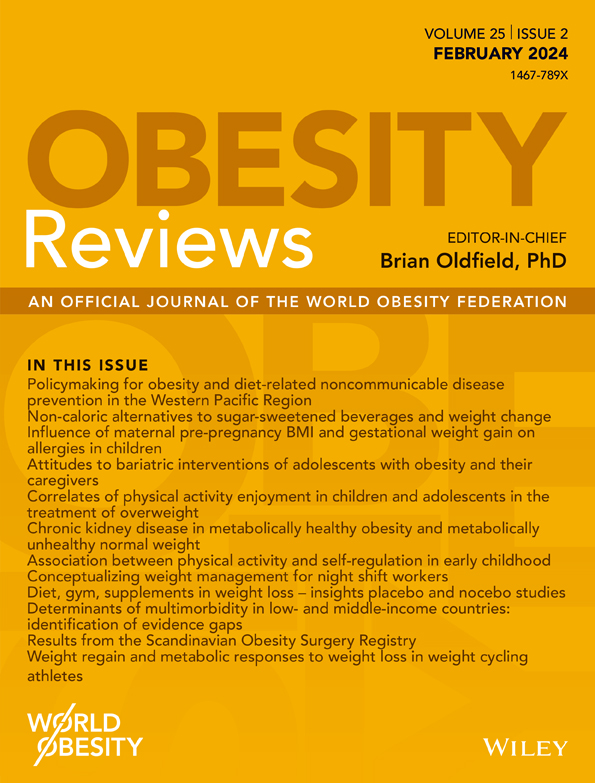Estimating global prevalence of mild cognitive impairment and dementia in elderly with overweight, obesity, and central obesity: A systematic review and meta-analysis
Abstract
Background and Aim
Previous studies have demonstrated that adiposity, particularly obesity during midlife, may have a detrimental effect on cognitive function. This study aims to estimate the global prevalence of mild cognitive impairment (MCI) and dementia in elderly aged 60 years or above with overweight, obesity, and central obesity.
Methods
We searched PubMed, Embase, Web of Science, and Cochrane Library from inception to November 2023. DerSimonian-Laird random-effects model with Logit transformation was used. Sensitivity analysis, meta-regression, and subgroup analysis were employed to investigate determinants of the prevalence of MCI and dementia.
Results
A total of 72 studies involving 2,980,947 elderly with distinct adiposity status were included. Pooled prevalence of MCI and dementia in elderly with overweight and obesity was 32.54% and 9.47%, respectively. Univariate meta-regression analysis indicated that the heterogeneity in dementia prevalence was attributable to variations in study size (R2 = 0.01, p < 0.05), while the multivariable analysis underscored that the income of country or area had the most significant predictive importance (60.3% and 90.3%) for both MCI and dementia prevalence. Subgroup analysis revealed regional disparities and diagnostic technique variations contributing to heterogeneity. Based on currently available but inadequate epidemiological data, the pooled prevalence of MCI and dementia in elderly with central obesity was calculated as 10.18% and 9.75%, respectively.
Conclusion
Strategies to address adiposity-associated cognitive impairment should consider multifaceted interventions beyond simple weight reduction. Macro-level initiatives such as improvement of income levels and micro-level interventions including the adoption of accurate diagnostic techniques also represent equally pivotal components.

 求助内容:
求助内容: 应助结果提醒方式:
应助结果提醒方式:


